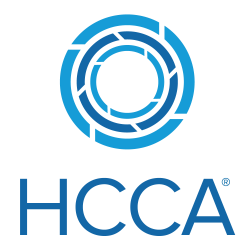Hosting a robust onboarding process for introducing entry-level hires to their job responsibilities is clearly a best practice for any industry. Taking things one step further by onboarding both new and promoted employees who are at any step on their career ladder is proving to also be a wise move for the clinical research enterprise, says one experienced observer of trends in the profession.
“It takes about a year to train a study coordinator,” including an initial three-month period of intensive training at Rochester Clinical Research (RCR) in New York, notes Kathleen Ebeling, RN, CCRC, a Study Manager with the site (part of the Atlas Clinical Research network), who presented on “Research Staff Onboarding and Training Essentials” at the ACRP 2024 conference in Anaheim, Calif., in May. “[But when] you work in clinical research, you’re signing up to constantly learn. The position keeps changing and growing; nothing stays the same. Things that are very important now didn’t even exist when I started here [in 2012].”
ACRP empowers organizations to trust that their studies are in the hands of qualified professionals.
Behind every clinical trial is a highly qualified clinical research team committed to ethics, compliance, and the highest professional standards – a team that makes a profound difference in peoples’ lives. And behind them is ACRP. When trained and credentialed by ACRP, these teams have the competence and confidence organizations can trust to deliver excellence and maintain integrity in clinical research.
Explore ACRP Employer Services >
That’s why, at RCR, onboarding is not a “one and done” deal—for example, an employee who has been there for five years and is moving into a new position will go through a new onboarding process, Ebeling says. This is viewed as a proactive way to combat the currently daunting turnover figures in the field—pegged at 60% for employees with five to 10 years of tenure, according to an SCRS study from 2022 cited by Ebeling. However, even just filling open positions for brand new clinical researchers doesn’t come cheap—Florence Healthcare estimates a three-month onboarding period costs about $25,000 per employee, Ebeling says, and that’s without any guarantee the new study coordinator will stay on the job long term once they are assigned to actual studies.
Although quick turnovers among new hires is embarrassing and expensive, Ebeling says, “I would rather have someone decide the position is not for them and leave early, than to have someone who was onboarded successfully leave a year later once they are assigned to actual studies.”
When a scenario of that sort developed at a time of greatly increased activity at her site some years ago, Ebeling says the departing study coordinators reported feeling as if they did not fully understand the responsibilities of their role or that they had not been thoroughly trained for it. That led to a wholesale re-examination of RCR’s approach to onboarding and a transformation to its current three-step practice, which provides a consistent method for training all new staff across all departments, Ebeling says.
Ebeling reports being grateful to have learned from that challenging time, because, “If we had not developed this [onboarding] program [several years ago], in 2020, when all those COVID-19 vaccine trials came and we literally exploded” with activity, “there would have been no way that we could have handled training all the new staff. Out of the rain clouds definitely came a silver lining.”
You can learn more about best practices for clinical research professional onboarding by checking out a recording of Ebeling’s ACRP 2024 session, which is among those in the “Leadership and Professionalism” track in the “Recorded Conference” group of the ACRP Course Catalog (login required for purchase).
Edited by Gary Cramer



